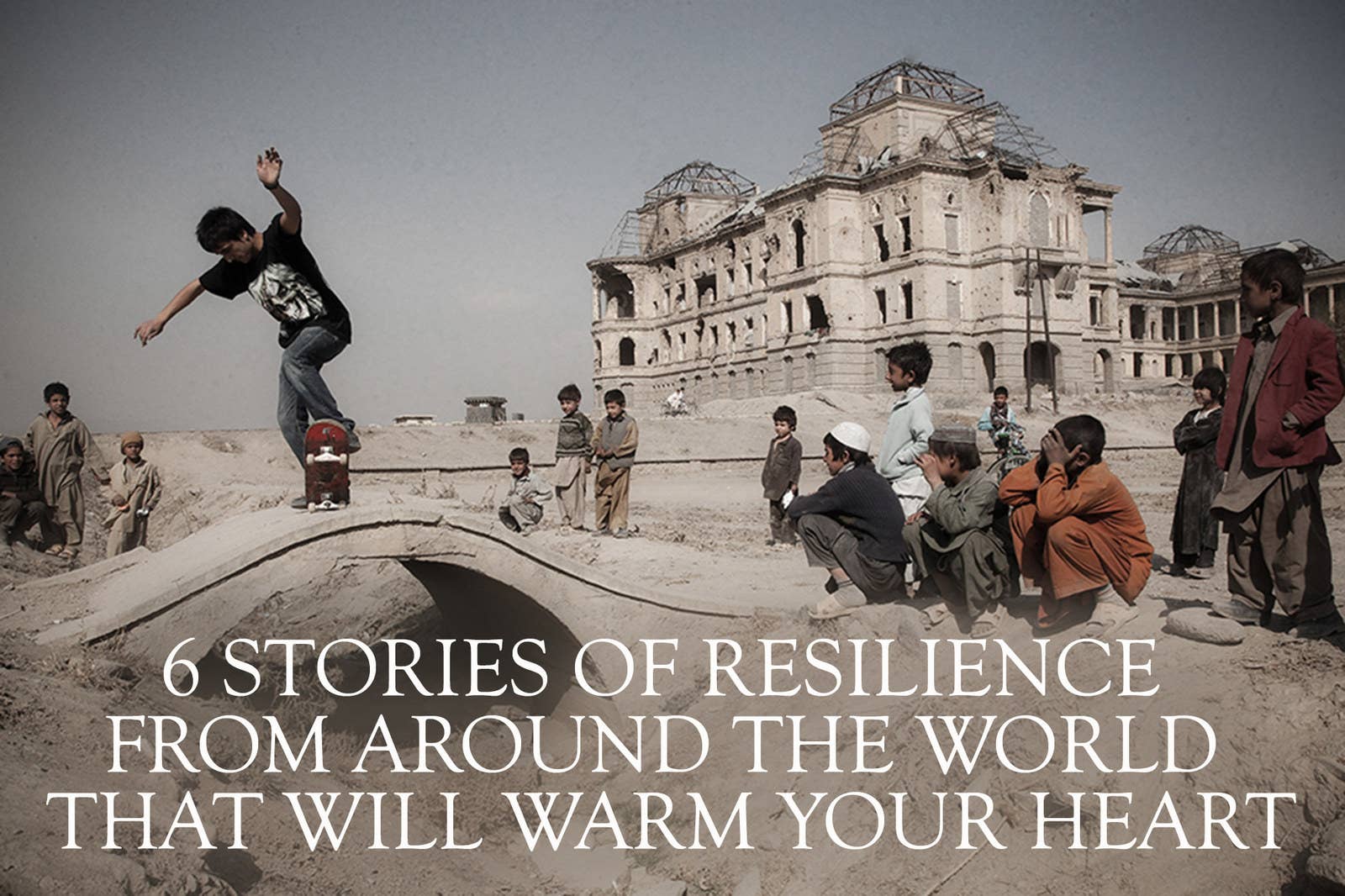
1. The Miracle Baby
Khaled Farah is a first responder for the White Helmets in Syria’s Civil Defence team. In the last four years, nearly 200,000 Syrians have lost their lives in the Syrian civil war, where civilians are targeted daily with bombs. Khaled is one of 2,697 volunteers, including more than 80 women, who risk their lives every day.
On July 11, 2014, a barrel bomb was dropped in the Ansari neighborhood of Aleppo. Khaled arrived on the scene of the blast to help pull people out of the debris. He kept an eye on the sky, as a second bomb is often dropped to kill rescue workers.
As the team pulled two families out of the debris, one of the mothers cried out desperately that her 2-week-old baby was missing. Khaled rested his head against the concrete and heard a baby crying. He called over his team and started digging through the rubble as gently as possible so as to keep the baby safe. They finally spotted the child, and using car jacks — the only tool at their disposal — they lifted the concrete slab to pull the baby out.
Khaled recently visited Muhammad, the baby he saved from the rubble. Thanks to people like Khaled, over 22,000 lives have been saved. Yet the destruction of lives will continue until the world steps in to stop the bombing.


2. The Sherpa and the Earthquake
Nuri is a sherpa who has spent his life helping climbers from all over the world hike the mountains of Nepal. When the earthquake hit Nepal in April 2015, Nuri was helping Don Bowie and his team climb the Annapurna Circuit.
News spread fast of hundreds of villages flattened or decimated by the earthquake, villages nestled deep in the mountains that were cut off from any supplies. Bowie’s team decided to remain in Nepal and help where they could. Though Nuri’s own home had been destroyed, and he longed to be with his family, he chose to stay and join Bowie’s team in their efforts to help the World Food Programme provide humanitarian relief.
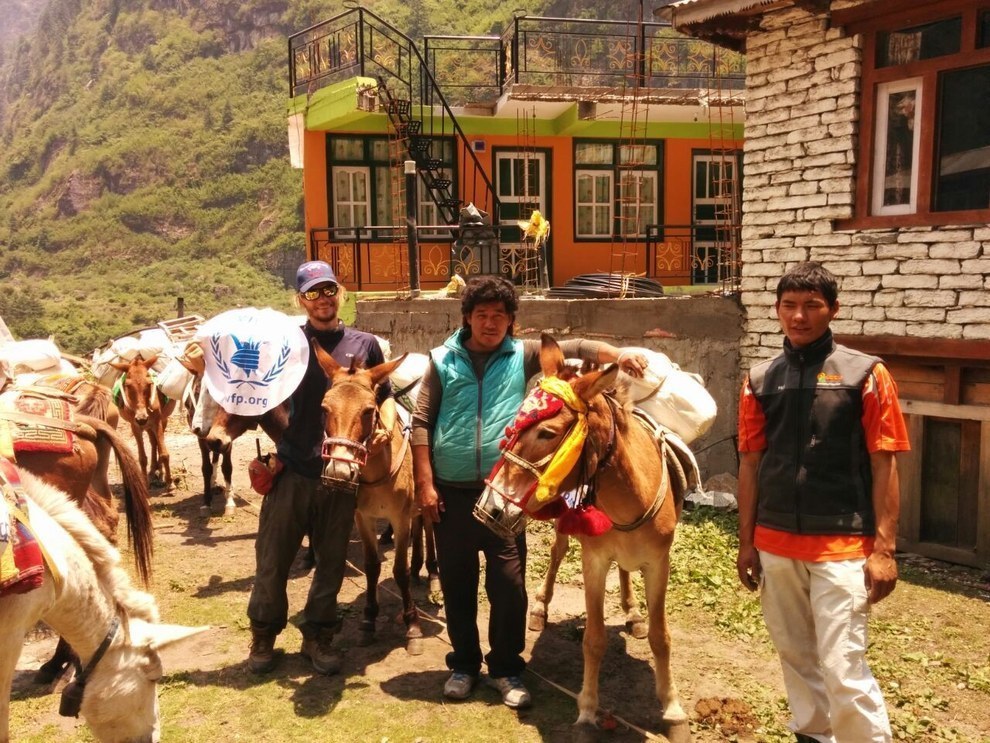
The Larke Pass is a passageway that used to provide access to these isolated villages before it was cut off by a landslide. Nuri and the crew worked for three weeks to get the Larke Pass open for supplies, then prepared mules for the long journey to bring WFP food to remote villages. The team trekked through cold temperatures and low oxygen — and 5,100 m altitude! — to reach village after village. They were completely self-sufficient, carrying their own food, equipment, and medical supplies on mules. With every stop on their journey, they assessed the needs of the community and relayed them via satellite phone back to WFP’s operations team.
Nuri is one of thousands of people doing their part to help Nepal following its devastating tragedy.
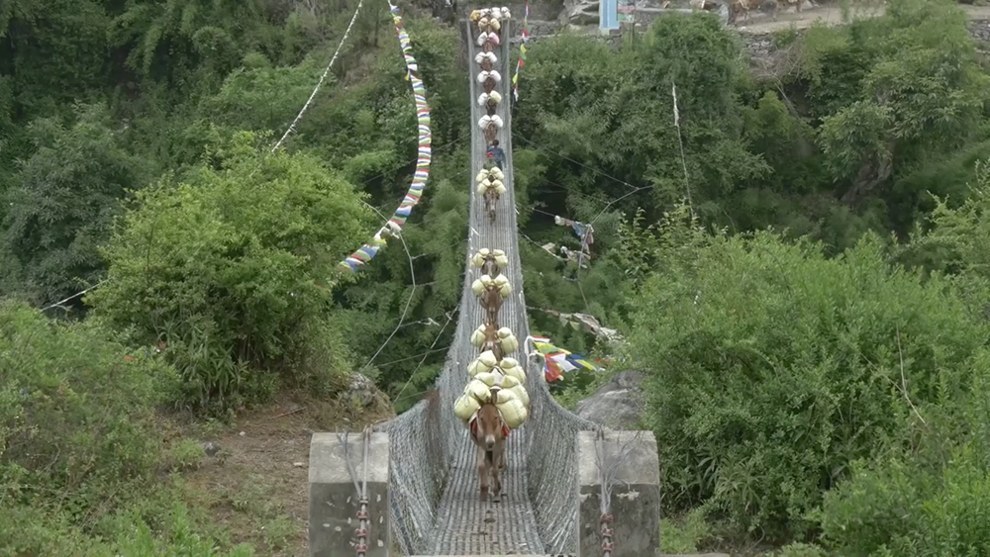
3. Skateistan
Oliver is a skateboard teacher working for Skateistan, a nonprofit that combines skateboarding and education as a tool for empowering young people. Half the population of Afghanistan is under the age of 16, and 70% of the population is under the age of 25. Most shocking is the role that women play in society — most of them don’t have jobs and cannot go to school. It’s even been deemed culturally inappropriate for them to ride bicycles!
Skateboarding, however, is so new in Afghanistan that nobody has had a chance to forbid the girls from doing it. So they skate!
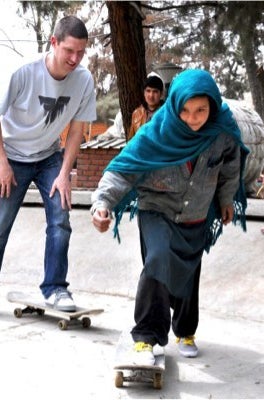

Oliver only makes $10 a week, and he only has electricity every couple of days, but he is constantly rewarded by his time with the children: showing them how to skate, teaching them valuable skills in the classroom, taking them on field trips around Kabul… He was even able to help a 12-year-old girl, Priscilla, get a job as a skateboarding instructor, so she could stop begging on the streets as a way of supporting her entire family.
But Skateistan is not without its heartbreak. In April 2015, four of the school’s students were killed in a suicide bombing at the NATO facility in Kabul. The community rallied together to help the families of the children who passed away, and at the skate park, a boy skated up and down the ramps in honor of his deceased brother.
Today, in Afghanistan, 40% of skateboarders are girls. Skateboarding is now the largest female sport in the country, and Skateistan continues to use it to educate and empower girls and boys through the community.
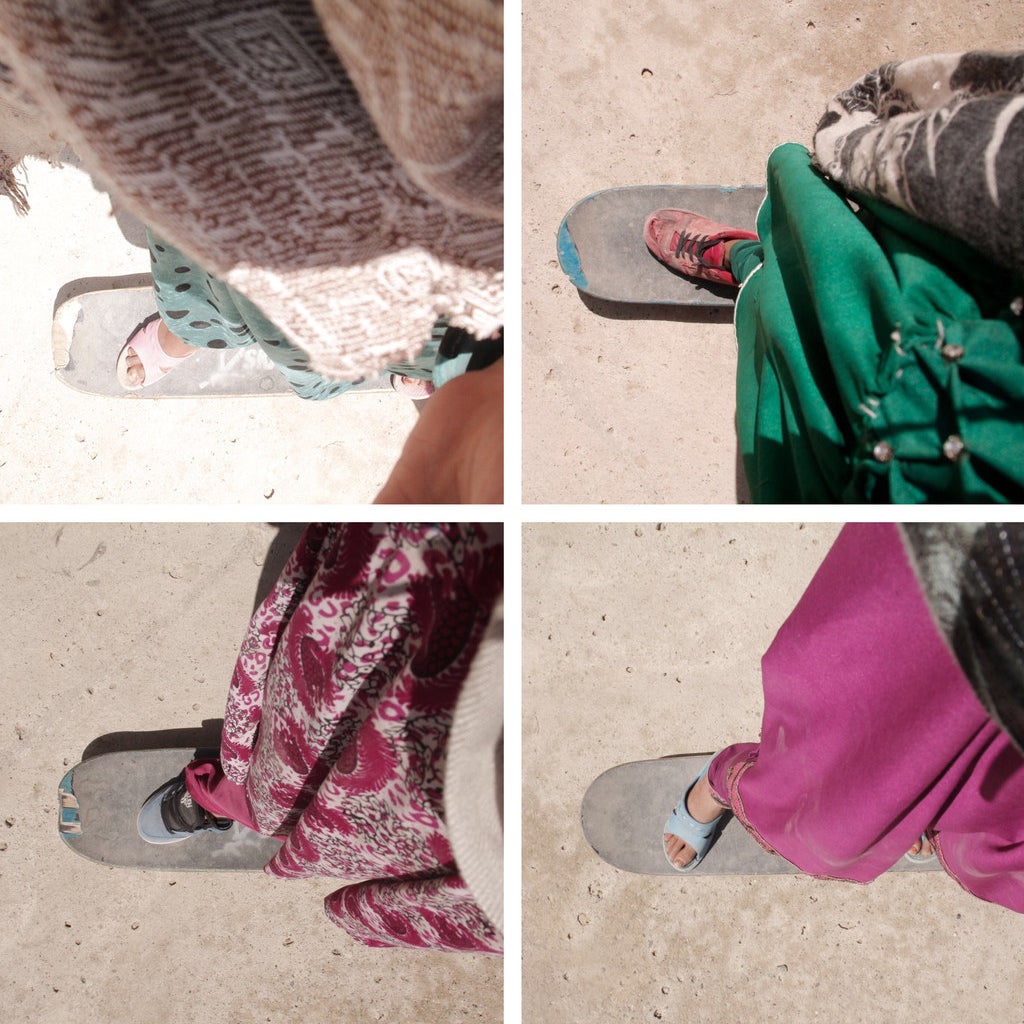
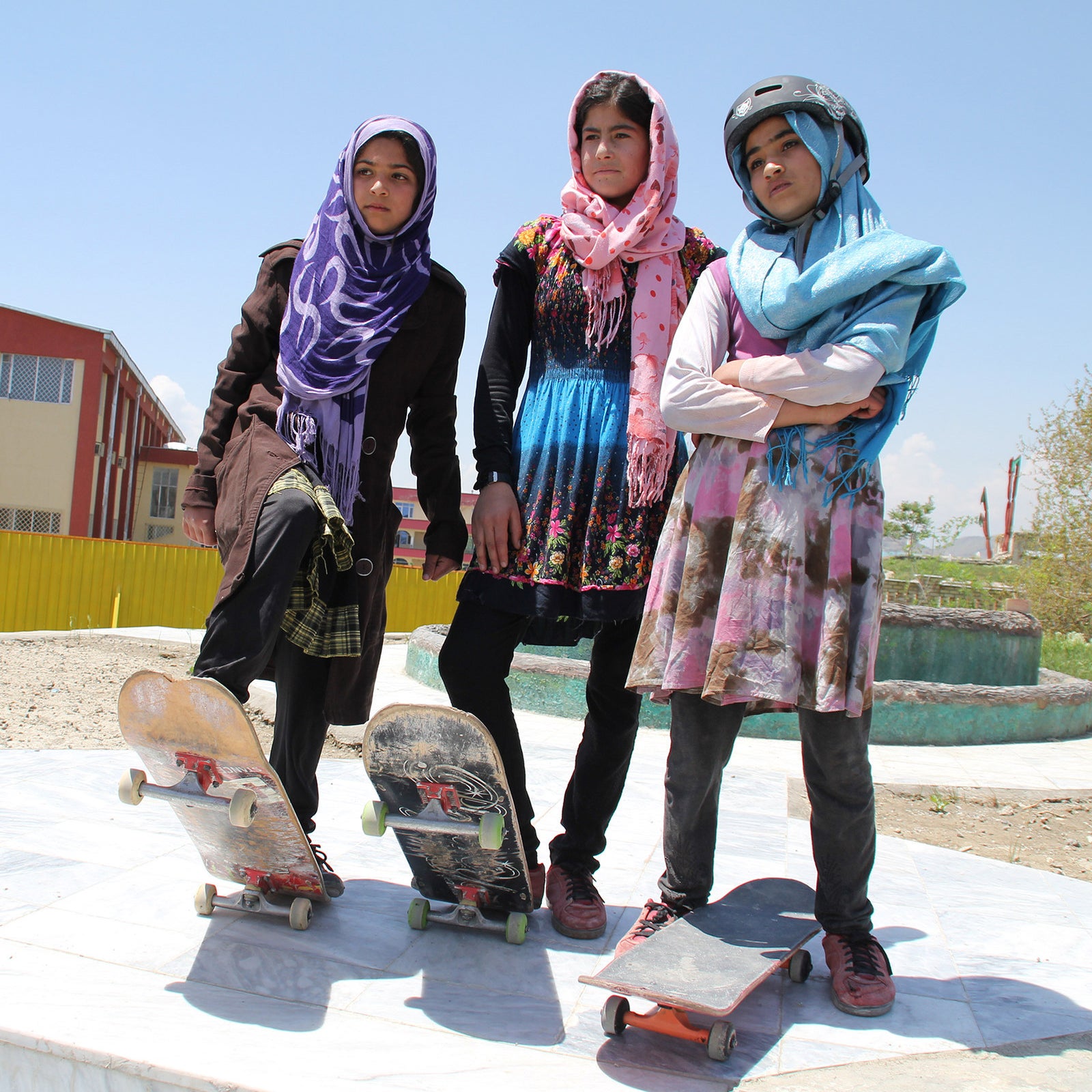
4. Circus School
Mohammad Qusam Ghouzlan is a circus trainer who helped Finn Church Aid start a circus school in the Za’atari refugee camp in Jordan two years ago. The camp was created to host Syrians fleeing the violent Syrian civil war. Over 80,000 refugees live there, and the camp is so large it could fit 1,000 American football fields!
At the beginning, circus school took place in a refugee tent. Today, the kids train in a padded floor hangar divided by a curtain — boys on one side, girls on the other. Children and youths in the camp need a way to unwind and to focus their attention on something positive. The circus school gives them hope for the future. It teaches them that it’s OK to make mistakes, and together they learn to trust each other and work as a team.
Experts say that children’s limbic systems become paralyzed in war situations. Sometimes, in the middle of an activity, some of the children seem to forget what they’re doing, or they’ll lose focus and stop listening to instructions. But teachers like Mohammad, and the work of the circus school, help give them focus. It also helps release war traumas and discharge the energy that builds up in young people forced to live in a small space.
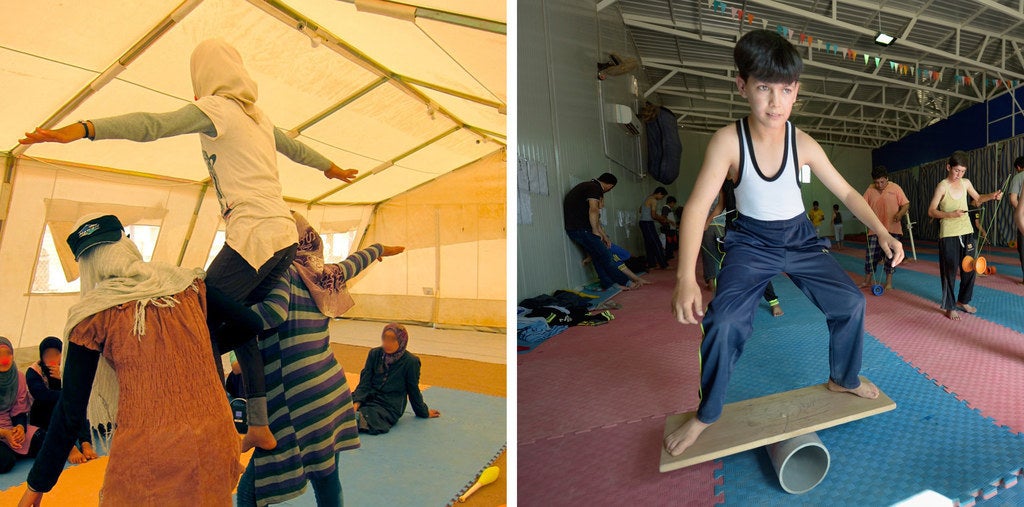
Mohammad helped the circus “go on tour” in the refugee camp, with NGO representatives and officials serving as an audience. The children rehearsed and planned for their show, picking out their music ("St. James Infirmary" by Allen Toussaint) and putting together choreographies (the girls danced to "Wannabe" by the Spice Girls!). The day of the show was a huge success, and Mohammad and the children were rewarded by the audience’s wild applause.
People like Mohammad, and the circus school, are one of many efforts to help give Syrian refugees hope and joy in their daily lives within the camp.
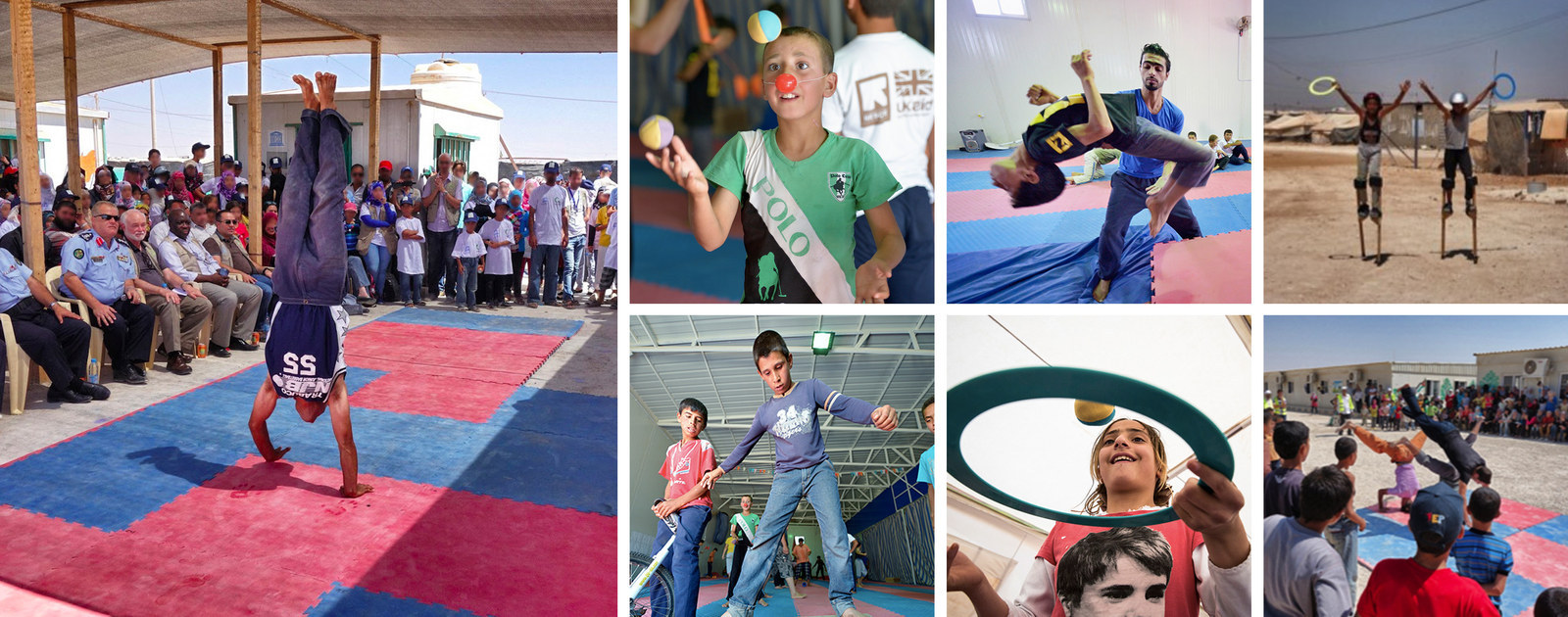
5. An Incredible Rescue
The Nepali earthquake in April 2015 completely destroyed the remote village of Laprak. Every building was leveled, 19 people were killed, and the village, located nine hours away from the closest road, was completely cut off from any kind of medical services or basic supplies. Enter Mike Karch, a volunteer doctor working with the International Medical Corps’ Emergency Response Team.
The response team was helicoptered into the village to provide lifesaving medical care and supplies. Getting people aid was made even more difficult, however, by massive landslides caused by the earthquake’s aftershocks. Eventually, a mobile medical unit was established 10,000 feet from the landslides and displaced people from nearby villages who began pouring in.
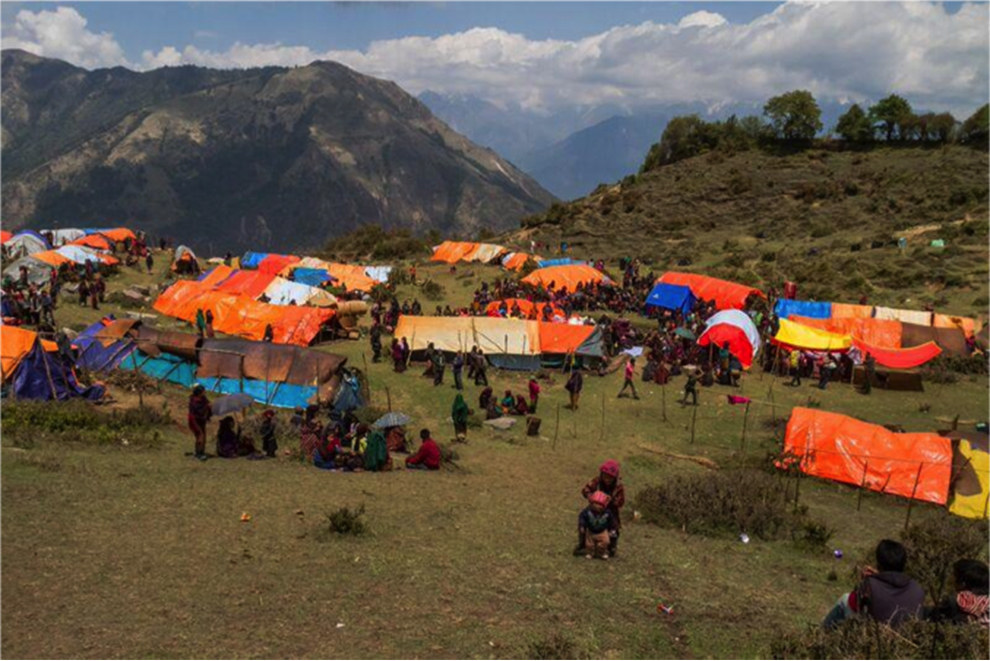
When a translator explained that a woman’s husband was still stuck down in the village, Mike formed a rescue squad with another doctor, an EMT, a young Nepali man, and the patient’s wife. They ran down the mountain as fast as they could and found the patient. The man had sustained a spinal injury and a stroke; neighbors had tied him to a rock pile to stabilize him. Without a stretcher on hand, Mike and the other doctor had to take turns carrying him fireman style on their backs, alternating every 50 feet. A stretcher finally arrived, and neighbors jumped in to help carry the injured man, switching out two men every three minutes to conserve everyone’s energy. Mike is an athlete — he’s competed in over five triathlons — but this was more physically demanding than anything he’d ever done before.
The group finally made it back up the mountain and safely transferred the patient to a helicopter to be taken to a local hospital. There are not enough words to convey the bravery of people like Mike, and the International Medical Corps, who are helping the more than 20,000 people injured in the quake.
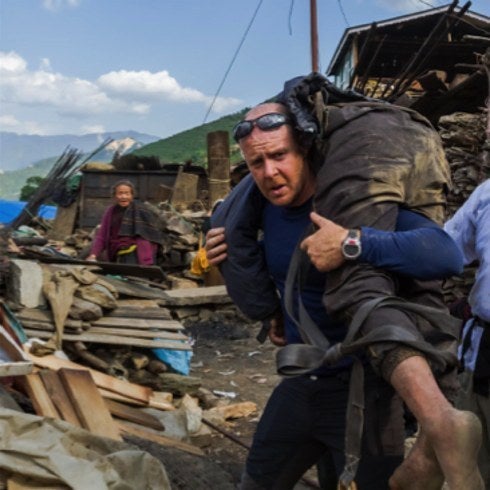
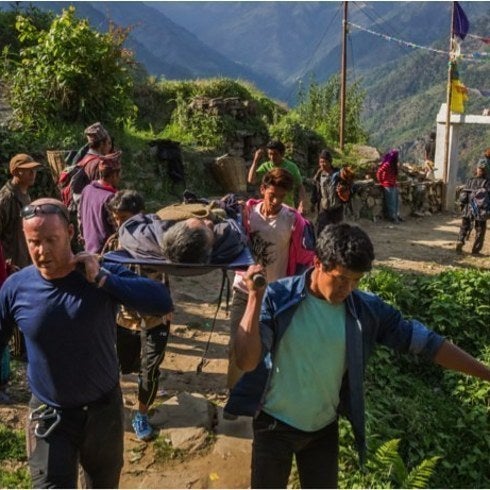
6. A Refugee’s Journey
The ongoing Syrian civil war has left thousands of people killed, injured, or displaced, while countless homes, hospitals, and schools have been damaged or destroyed. Thair was a student at the Arab International University in Damascus, Syria, when he decided to leave and seek protection in Lebanon.
His time in Lebanon was brief. The growing Syrian refugee population was putting a strain on the Lebanese economy and infrastructure, and tensions were rising. He decided to move on to Cairo, Egypt, staying with a friend and continuing his studies. Again, tension against refugees escalated quickly. Clashes on the street led to a military curfew, and the police interrogated his friend several times, asking if she was hosting Syrians.
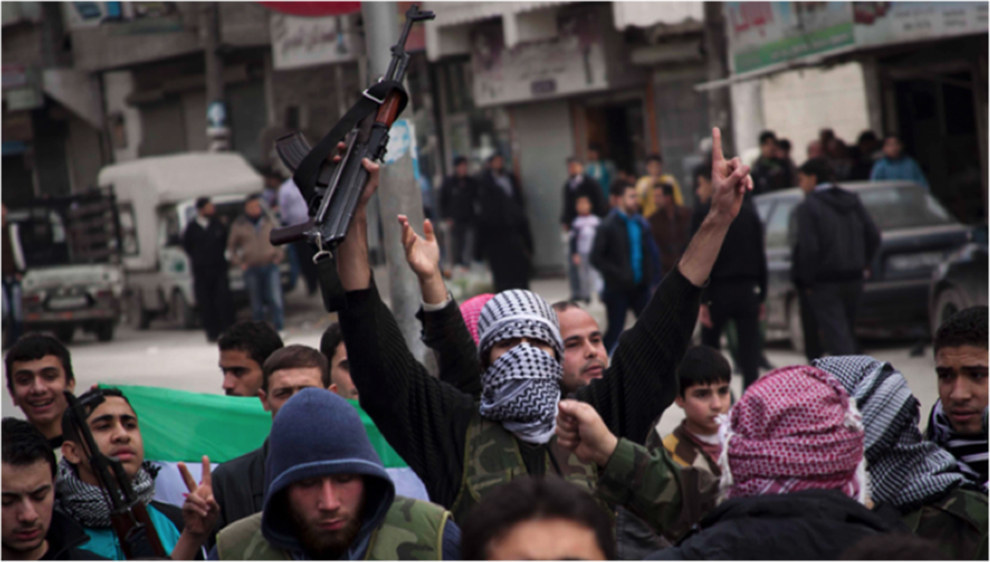
To get out of Egypt, Thair saved up $2,000 to buy a one-way boat ticket to Italy with other refugees. Though there were numerous stories about these boats sinking, with no survivors, Thair’s options were limited. He survived the 10-day journey, meeting other inspiring refugees along the way, and eventually managed to make his way to Milan. He had no passport, no money, no clothes, but he was happy to be alive. Thair made his way through Italy and eventually ended up in Western Germany, where his application for political asylum is being processed. Soon, he’ll have an interview, then wait three to six months to find out if the German government is to grant him asylum or not.
Thair traveled over 4,000 km to seek asylum. Thousands of Syrian refugees like Thair and his family continue to fight for their survival every single day, getting by only on their own inner resilience and thanks to the people who help them along the way.

Take a moment to read these stories of incredible resilience from around the world.
Find out how you can donate your newsfeed to share these stories in an entirely new way and celebrate World Humanitarian Day. #ShareHumanity
All facts, stories, and photos from World Humanitarian Day.
